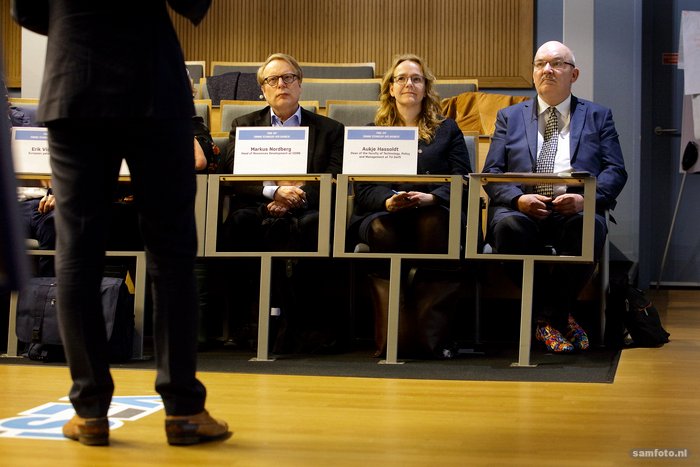Learning entrepreneurship
Engineers don’t always make natural entrepreneurs. They focus too much on the technology and not enough on the customer.
In the course Turning Technology into Business, engineering students learn how to think as entrepreneurs. Dr Dap Hartmann (TPM) is teaching the course for the 18th time. He sources materials from TU Delft patents and results from ongoing research. Students have three months to come up with a business case. What does Hartmann see as the most important lessons?
1. There’s a huge gulf between invention and innovation
Take the use of ionic liquids as a medium for chemical processes. Dr Maaike Kroon's discovery in 2006 showed a lot of promise: simply separating gas and liquid made it possible to achieve significant savings in pharmaceutical production. But for countless practical reasons, almost 15 years later the technique has hardly ever been applied. Fortunately, young entrepreneurs are naïve enough to underestimate the significant obstacles they face. If they weren’t, they might never even start out.
2. Technology is often good enough
Take the example of the Sunuru company that produced a hanging system with built-in solar panels. Useful for unusual locations, such as the front of the building or above a car park. But the technicians continued to develop it. They made the solar panels rotate with the sun and added parabolic mirrors to boost performance, which then needed cooling. “Start talking to the customer as soon as possible to see if your technology resolves their problem”, advises Hartmann. “It usually needs slight modification, so this is a good opportunity to fine-tune your solution. But don’t go too far if there’s no obvious demand.”
3. Talk about solutions, not technology
If the person you’re dealing with in the company understands how your invention works, you’re talking to the wrong person, says Hartmann. That’s the technical specialist, and they never deal with money because they’re not at that level of decision-making. Talk to the head of finance or CEO and explain what your invention does, what problems it solves and above all, how much that will save.
Students learn best from each other. This is why Hartman invites start-ups who took his course two or three years ago. He asks about their experiences in the meantime. Current students can relate to this and the lecturer also learns a lot. For example, one of the returners pointed out that they had never learnt to negotiate on their TU Delft programme. That area is now covered.
Ask the customer if your technology resolves their problem
